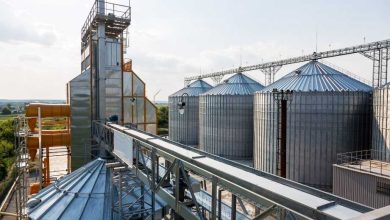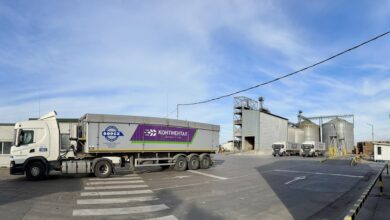Unconquered Asia: “What Ukrainian farmers need to know if they want to bite off at least a small part of the pie?”

At the same time, China is one of the largest trading nations in the global market. Activation of the external trade of agricultural products has formed a trend in the domestic market: from surplus to permanent deficit. Government has to think how to feed the growing population. Based on forecasts of the Development Research Centre in the PRC National Council on further increase in the population, the expected shortage of grain in the domestic market will reach 40-50 million tons. Food deficit in a country such as China is reasoned first of all by political aspects, because “a hungry man is not a happy man.” Therefore, the problem of meeting domestic needs for food in China will always be paid much attention. Import of agricultural products means for China, in a certain sense, the import of land and water resources.
Despite the fact that China is a WTO member and always says about its market openness, low market protection barriers and support of trade companies, it is very difficult to enter the market and feel comfortable there. Why? First, there is a huge discrepancy in mentality and understanding of the universe, which leads to a distorted interpretation of absolutely all agreements. Second, language and cultural barriers, which sometimes becomes a cornerstone in the implementation of mutually beneficial trade project. Third, limited access to information and regulatory documents. Very often a company can only understand how to implement a project with its Chinese partners based on the expert opinion or information from the affiliate company.
There is another fundamental factor in the development of bilateral relations. China is a communist country where the role and authority of an official is very high. Therefore, the principle of “all that is guaranteed or initiated by the state automatically becomes a “guarantee” works perfectly well. These are Ukrainian governmental bodies and officials who should take on the responsibility for development of relations between the two countries. Now the relations between Ukraine and China are not smooth enough, and this problem should be resolved as quickly as possible to prevent freezing of the business interest in our country for decades.
This year Ukraine has become the largest supplier of corn to China: the portion of our companies in the supply of this crop had reached almost 90% for five months of 2015. At the same time, supplies from the United States fell down to the record level which is equal to the increased level of import from Ukraine. What does this mean? Ukraine is acknowledged by the Communist Party of China at the governmental level to be one of the main partners for the development of trade and investment projects in the food sector. For the next decade the trading strategy of China is defined as “the export market diversification – focus on import markets.” The strategy to increase import from Eastern Europe is equal to establishment of the “New Silk Road”. It should enhance the marine and rail shipping operations between Europe and Asia. Ukraine is located on a new trade route to Europe. It also fits into the China’s initiative to make investments and to develop infrastructure in other regions, especially in Africa. So we can again speak about the advantageous geopolitical position of our country. However, it will depend on us only if we have sensitivity, competence and professionalism enough to take advantage of this benefit.
The agreement on trade and economic cooperation was signed in 1992 between the Government of Ukraine and the Government of China. This document establishes most favourable trade cooperation conditions between our countries. However, there were up to 20 successful projects implemented between China and Ukraine over the past two decades. At the same time, the Chinese market demonstrates the following amazing markers: it is a nation that makes physical exercise while listing to the radio, stays in long queues in luxury-shops all over the world; the average citizen knows by heart decisions of the last Communist Party Congress and makes about 10% of the retail purchases via the Internet; HNWI (HighNetWorthIndividuals) half of ten largest Asian markets is concentrated in China; one average household (three people living in the city) consumes about 5 litres vegetable oils per week.
What should Ukrainian business do on the way to subdue the biggest maturing “consumer” in the world? There is no panacea, but there are few basic rules: businesses should act and make it under active support and patronage of the governmental bodies; it should learn mentality and consumer preferences or attract professional consultants; it should create joint ventures that can quickly and easily open access to the market.
Text: Oksana Prosolenko, CEO of Tate Management, Partner of Calipso Invest Corp.




